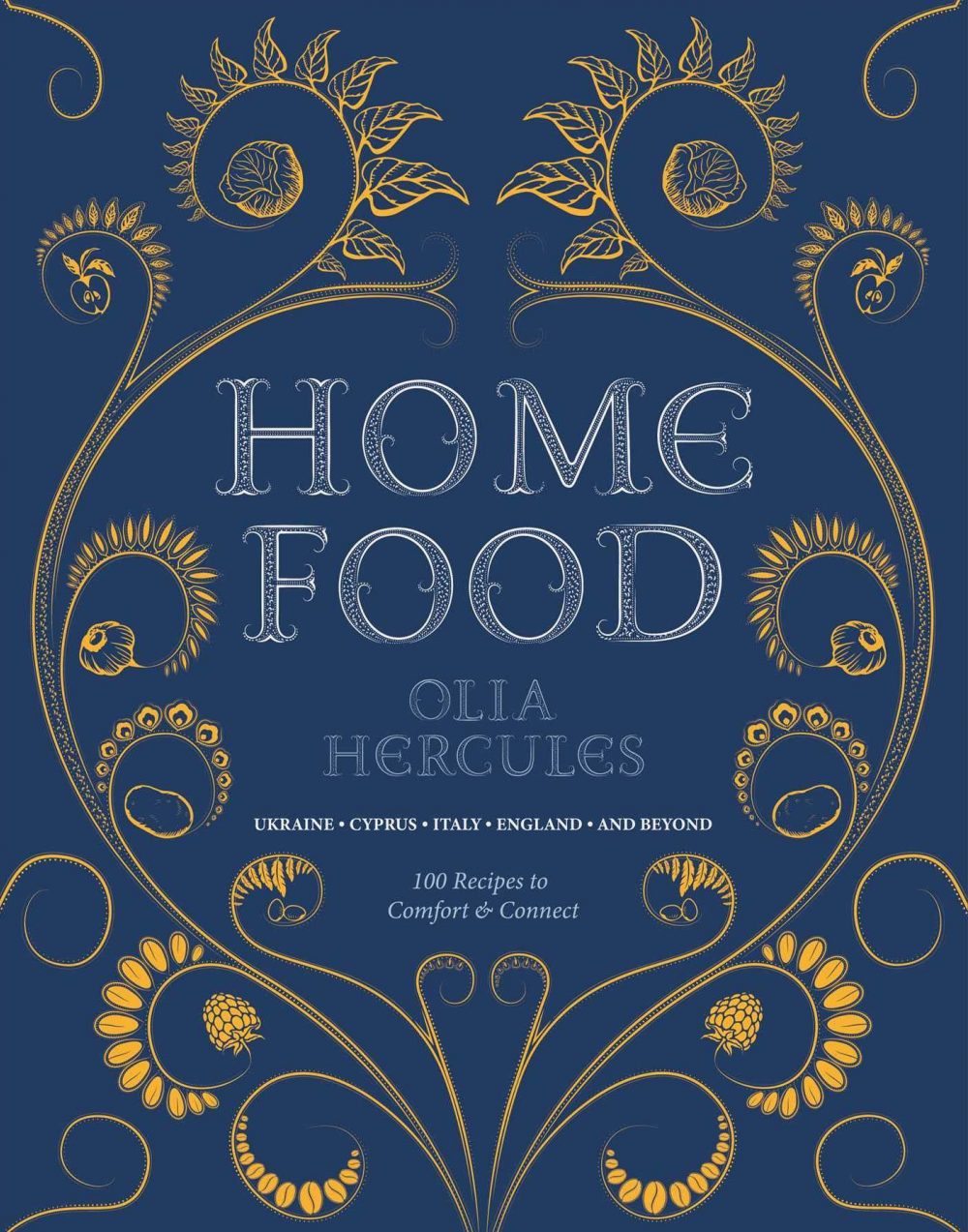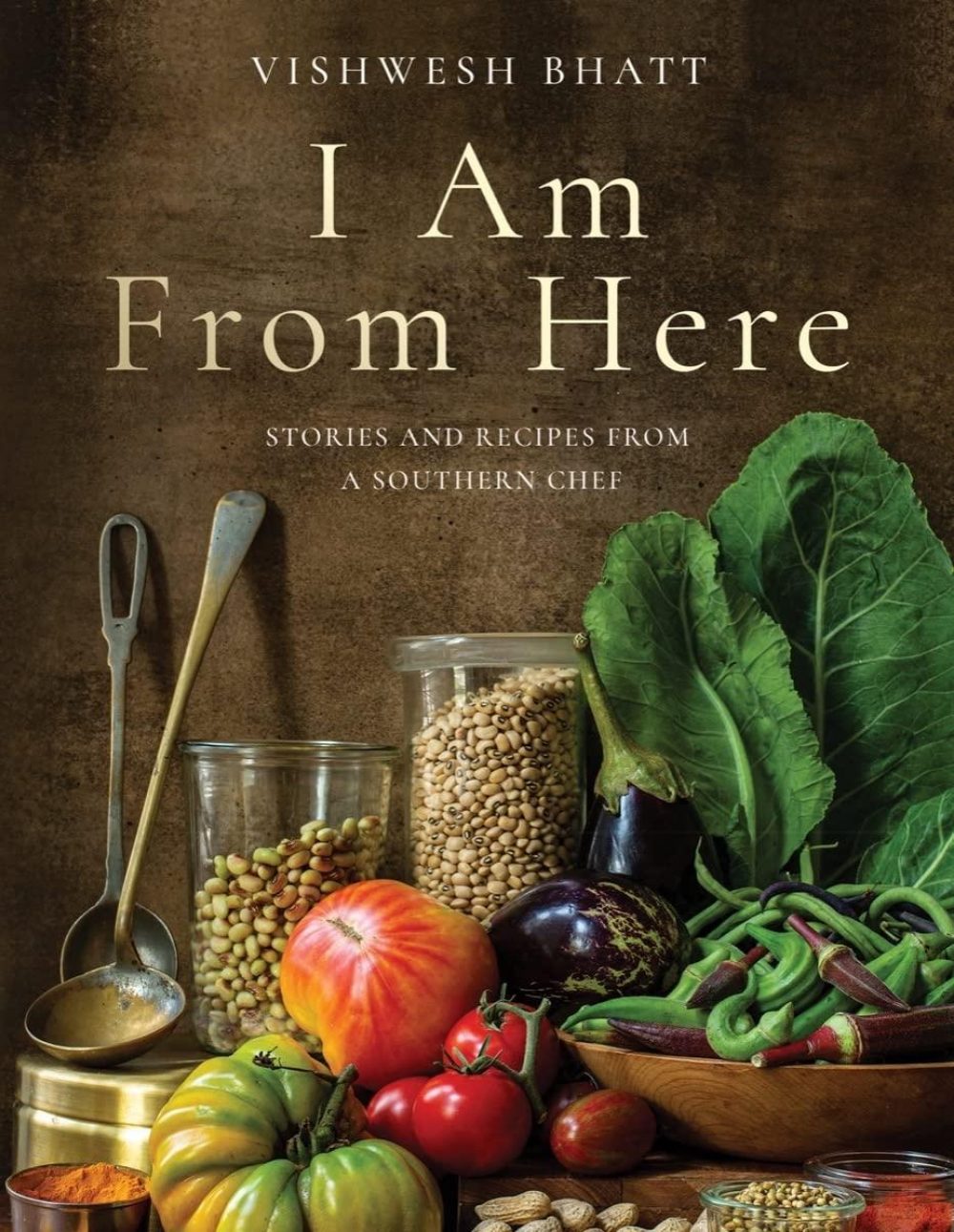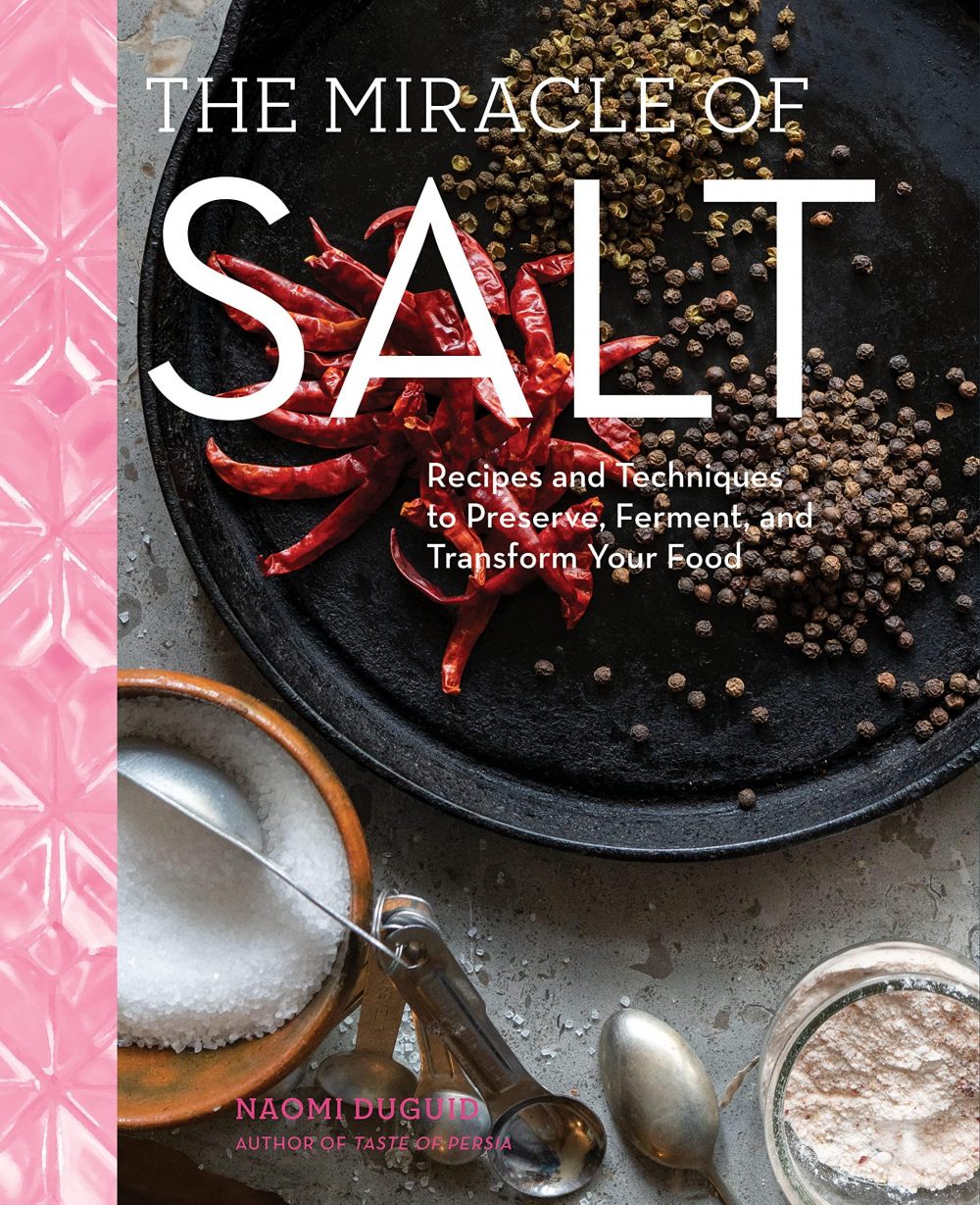Home Food
By Olia Hercules
The publication of “Home Food” comes at a difficult time for Olia Hercules, with her native Ukraine at war. Her brother, Sasha, joined the defense forces at the outset of the conflict, and her father still lives in the country. Home has taken on a deeper, more richly felt meaning. Ukraine is such a large country—from the hot, flat southern region near Crimea to the Carpathian mountains in the northwest where, during Christmas, neighbors go door to door singing and playing instruments, some of them wearing goat masks. It’s true folk opera. The irony in all of this is that “Home Food” connects so deeply to a sense of place, undisturbed by war and welcoming to all. Hercules’ food is one part frugal, one part satisfying and many parts intriguing. Make pasta with a quick garlic confit and goat cheese; marinate lamb chops in yogurt and harissa; make dal with two different types of lentils; steam eggplant instead of roasting it, then serve with a soy-ginger dressing. Some recipes will surprise—cheese and grape muffins or a savory French toast—and others are just solid home cooking, such as a roast chicken. And you will also learn to take cabbage seriously—it’s not just for coleslaw. Hercules has raised millions of dollars for Ukraine—she co-founded the movement #CookForUkraine, which encourages restaurants and others to cook Ukrainian food and donate funds to Unicef. All in all, Hercules is a woman for all seasons.
Buy on amazon
I Am From Here
By Vishwesh Bhatt
The American south is a hotbed of cross-cultural cuisines. Lexington, Kentucky’s Sam Fore, for example, merges Sri Lankan foodways with local traditions. Vishwesh Bhatt is no exception. He started as a prep cook at City Grocery in Oxford, Mississippi, and has been executive chef at Snackbar from its opening in 2009. Local ingredients—peanuts, sweet potatoes and cornmeal are heavy lifters, but some recipes also call for fenugreek seeds, Kashmiri chili powder and asafoetida. (Don’t panic, these ingredients are more aspirational than required.) The food has a familiar ring—monsoon grilled corn, charred eggplant, green tomato pie, Bombay toasties (grilled cheese with a mashed potato filling), collard green slaw, country captain pork, a Moroccan-style chicken stew, peanut pie, cornbread and a tomato omelet. Bhatt understands the American palate (if there is such a thing), so he understands that offering recipes that are a half-step away from the familiar is the sweet spot. Plus, he knows where he is from: Though he came to the U.S. when he was 17, his cooking and his persona are both deeply rooted in Oxford.
Buy on amazon
The Miracle of Salt
By Naomi Duguid
Naomi duguid takes her books seriously—she grabs a backpack, hops on planes and travels the world to experience firsthand whatever she is writing about. For “The Miracle of Salt,” she traveled to Gujarat (India), Kampot (Cambodia), Bo Kleua (Thailand) and Telouet (Morocco), to name just a few destinations. All salt started out as sea salt; today, some of it is mined from underground deposits, some evaporated in salt basins, and some recovered in boiled seawater. Salt has been used as currency, it has been taxed (as it was in India, eventually leading to the downfall of British rule in that country), and it has been used for millennia to cure meats and preserve vegetables. Salt draws water out of cells, allowing lactic-acid bacteria to reproduce while killing off the “bad” bacteria. Duguid shows us how to brine tomatoes and make small-batch sauerkraut, and she provides recipes for flavored salts, which will improve your cooking overnight. In her hands, salt comes alive as a superhero ingredient that binds foodways from around the world.









